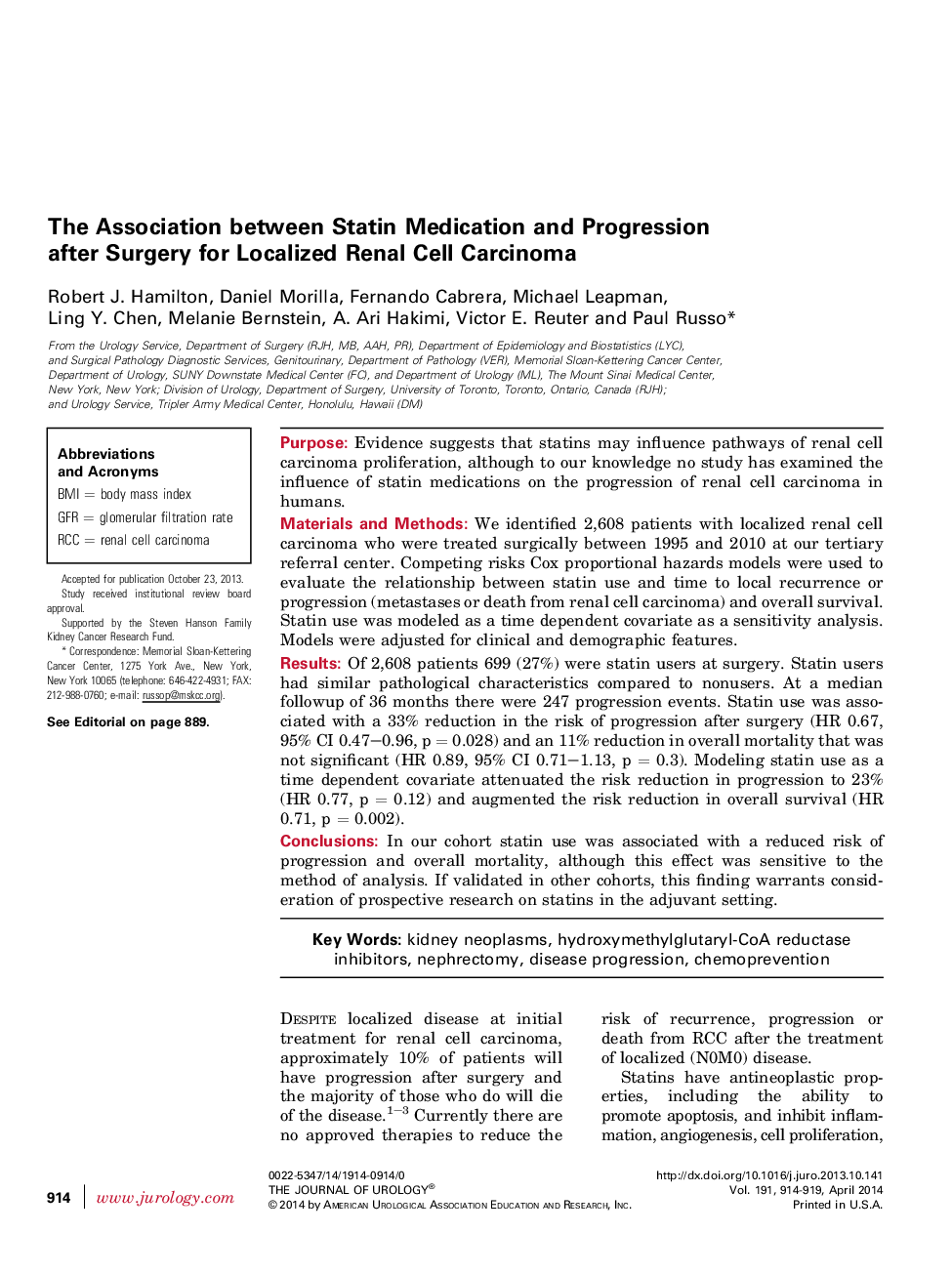| Article ID | Journal | Published Year | Pages | File Type |
|---|---|---|---|---|
| 3865568 | The Journal of Urology | 2014 | 6 Pages |
PurposeEvidence suggests that statins may influence pathways of renal cell carcinoma proliferation, although to our knowledge no study has examined the influence of statin medications on the progression of renal cell carcinoma in humans.Materials and MethodsWe identified 2,608 patients with localized renal cell carcinoma who were treated surgically between 1995 and 2010 at our tertiary referral center. Competing risks Cox proportional hazards models were used to evaluate the relationship between statin use and time to local recurrence or progression (metastases or death from renal cell carcinoma) and overall survival. Statin use was modeled as a time dependent covariate as a sensitivity analysis. Models were adjusted for clinical and demographic features.ResultsOf 2,608 patients 699 (27%) were statin users at surgery. Statin users had similar pathological characteristics compared to nonusers. At a median followup of 36 months there were 247 progression events. Statin use was associated with a 33% reduction in the risk of progression after surgery (HR 0.67, 95% CI 0.47–0.96, p = 0.028) and an 11% reduction in overall mortality that was not significant (HR 0.89, 95% CI 0.71–1.13, p = 0.3). Modeling statin use as a time dependent covariate attenuated the risk reduction in progression to 23% (HR 0.77, p = 0.12) and augmented the risk reduction in overall survival (HR 0.71, p = 0.002).ConclusionsIn our cohort statin use was associated with a reduced risk of progression and overall mortality, although this effect was sensitive to the method of analysis. If validated in other cohorts, this finding warrants consideration of prospective research on statins in the adjuvant setting.
